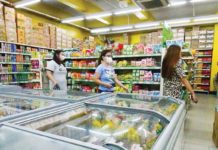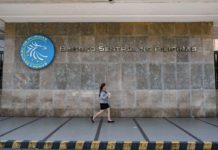
MANILA – The passage of tax reform measures that would address supply-related issues in agriculture is seen to sustain the robust growth of the Philippine economy.
In an economic bulletin released on Nov. 9, the Department of Finance said other measures to avert an economic slowdown include sustaining the rapid growth of investment through additional “Ease of Doing Business” measures and enhancing competition by liberalizing foreign direct investment (FDI).
Finance undersecretary Gil Beltran cited that FDIs in the first seven months of 2018 rose 52 percent.
He explained that investments backed the economy since its share on the domestic output registered its highest level in the third quarter this year after it rose 26 percent compared to the 23.6 percent same period in 2017.
“This will sustain rapid economic growth over the medium term,” he said.
In the third quarter this year growth, as measured by gross domestic product , rose 6.1 percent, slower than the 6.2 percent in the previous quarter and the 6.6 percent in the first quarter.
The lower output was traced to the elevated inflation rate that negatively affected household consumption, the -0.4 percent output of the agriculture sector, the slower growth of manufacturing due to drop in food manufacturing because of limited supply, the -4.6 percent growth of chemicals due to tight regulation, and the -21.4 percent output of tobacco and alcoholic beverages due to lower consumption after the tax hikes.
These factors are however countered by the 16.7-percent rise of investments, 16.1-percent increase of the construction sector, 6.9-percent rise of the services sector, and 14.3-percent rise of healthy exports.
Investments are expected to remain a major contributor to the domestic growth, especially with the government’s massive infrastructure program as well as tax reform measures.
In 2017, FDIs going into the Philippines registered a record-high $10 billion, up 21.4 percent year-on-year, as the country remains attractive to investors.
Relatively, the Duterte administration plans to invest at least $8 trillion until the end of its term in 2022 for its “Build, Build, Build” program to ensure the construction of necessary infrastructure nationwide, thus making growth more inclusive.
The current government has identified 75 priority programs like airports, roads and transportation systems that are expected to sustain the economy’s six percent growth and even lift it to higher levels in the coming years. (With a report from PNA/PN)




